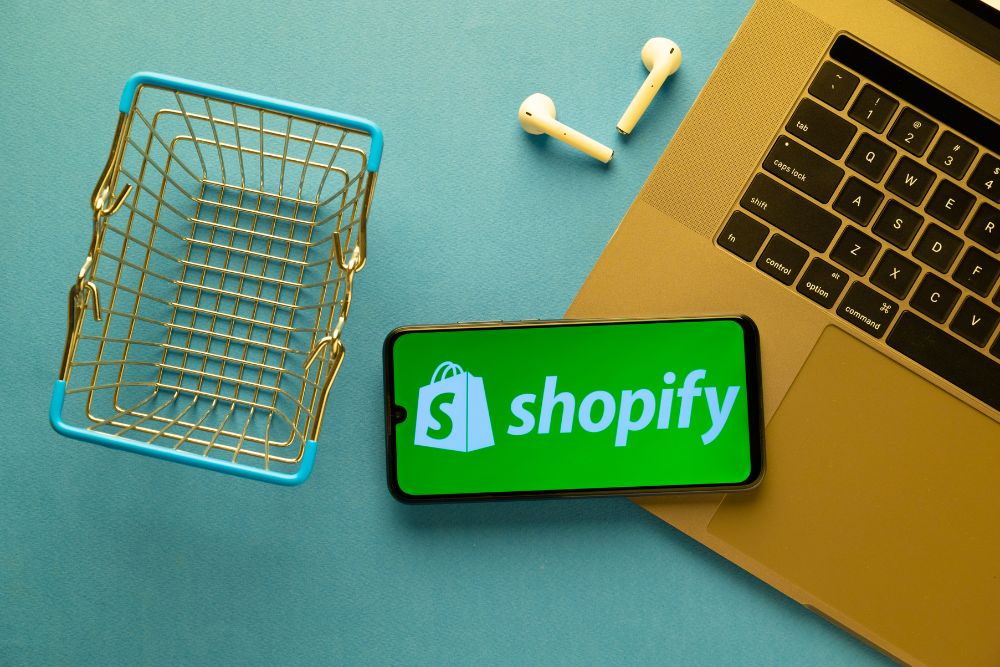The new and established businesses require reliable and scalable platforms to manage their online stores effectively. One of the leading choices in the market is Shopify, a globally trusted E-commerce platform known for its ease of use and robust functionality. As your business grows and requires greater customization, control, and support, you may start to ask yourself: Is upgrading from Shopify Basic to Shopify Plus worth it?
This article gives the key differences between Shopify Basic and Shopify Plus, helping you decide which platform aligns best with your business goals, technical needs, and budget.
Understanding Shopify Basic and Shopify Plus
Before we analyze the differences, it’s important to understand what each version offers at its core.
Shopify Basic
Shopify Basic is the entry-level subscription plan offered by Shopify, designed for individuals and small businesses looking to launch and manage an online store with essential E-commerce features. It includes everything you need to build a functional storefront, accept payments, and start selling online.
Shopify Plus
Shopify Plus is Shopify’s enterprise-level offering, designed for high-volume dealers, large businesses, and brands experiencing rapid growth. It includes all the features of Shopify, with added customization, advanced API access, dedicated support, and automation tools aimed at large-scale operations.
Think of Shopify Plus as Shopify’s big sibling, built to manage complex operations, high traffic, and multi-channel strategies.
Key Feature Differences
When choosing between Shopify Basic and Shopify Plus, it’s essential to understand the unique benefits that come with the advanced plan. Shopify Plus offers enhanced capabilities designed for high-growth businesses that require more control, flexibility, and support.
1. Custom Script Functionality
Shopify Plus provides access to powerful scripting tools that allow merchants to automate various aspects of their online store. These scripts can be designed to create promotional offers, adjust pricing, or apply custom discounts. Some common use cases include:
- Configuring the Checkout Experience: Add personalized fields, validate inputs, or create dynamic pricing models based on customer data.
- Customizing Cart Operations: Implement logic to apply bulk discounts or bundle offers.
- Automated Order Handling: Automate tax calculations, shipping estimates, or post-order actions.
- Product Page Enhancements: Introduce custom product options or intelligent recommendations.
- Improved Tracking: Monitor customer behaviour and generate custom reports for performance analysis.
2. Enhanced Reporting and Analytics
Both offer reporting tools, but the Plus version delivers much more detailed and flexible analytics.
- Shopify Basic: Includes basic insights such as product performance, customer demographics, and general sales trends by category and region.
- Shopify Plus: Unlocks deeper analytics, including advanced sales data, inventory insights, and custom dashboards for specific metrics.
You can filter reports by customer attributes, track complex behaviours, and integrate external analytics platforms via API to gain a holistic view of your business performance.
Tools like Richpanel make customer timelines more accessible without switching between platforms, further simplifying the analytics process.
3. Customizable Checkout Experience
Shopify Plus enables businesses to take full control of the checkout experience to align with their branding and optimize conversions.
- Custom Input Fields: Collect extra details like gift messages or product customizations.
- Advanced Validation Rules: Ensure correct input formats, such as phone numbers or postal codes.
- Dynamic Pricing Rules: Set pricing based on location, cart contents, or order size.
- Improved Checkout Scripts: Add new features, like shipping rate calculators or live support widgets.
- Branded Design: Reflect your brand’s visual identity at checkout.
- Multilingual Checkout: Shopify Plus supports up to 20 languages, compared to 5 in the standard plan, ideal for global E-commerce.
4. Cart Recovery Tools
One area where Shopify Plus excels is in converting abandoned carts into completed purchases.
- Automatic Recovery Emails: Trigger emails that remind customers about their abandoned carts, often with personalized offers.
- Retargeting Campaigns: Use Facebook Pixel or Google Ads to re-engage visitors by showcasing products they left behind.
- Workflow Automation: Create rules that send recovery emails or apply incentives after a user abandons their cart a specific number of times.
These features help reduce lost sales and boost your conversion rate.
5. Scalability for High-Volume Businesses
Shopify Plus is built to accommodate enterprise-level demands. It supports heavy traffic and large transaction volumes without compromising performance. This makes it the ideal choice for rapidly growing or well-established businesses looking to expand further.
6. Dedicated Account Management
With Shopify Plus, merchants benefit from a dedicated account manager. This expert advisor helps guide your growth strategy, suggests best practices, and provides personalized support for optimizing your E-commerce operations.
Additional advantages include:
- Access to Exclusive APIs: Use advanced API capabilities to integrate with third-party tools.
- Shopify Flow: Automate repetitive tasks and simplify complex workflows.
- Merchant Success Program: Join a successful community and get insights from other successful brands scaling their businesses.
Who Should Choose Shopify Basic?
Shopify Basic is ideal for:
- Startups and small businesses with predictable traffic and moderate product offerings.
- Brands are looking for a quick, easy, and cost-effective way to sell online.
- Businesses can operate well within the features that Shopify Basic provides.
Use Case Example:
A boutique selling handmade accessories with 100 unique products and moderate monthly traffic will likely find the Shopify Basic plan sufficient.
Who Should Choose Shopify Plus?
Shopify Plus is best suited for:
- High-growth or enterprise-level brands.
- Businesses generating $ 1 M+ in annual revenue.
- Companies that need customized checkouts, multi-store management, or heavy API usage.
- Teams that require dedicated technical support and training resources.
Use Case Example:
A global fashion brand launching seasonal collections with flash sales and regional stores across 5 countries will benefit significantly from Shopify Plus.
Choosing between Shopify Basic and Shopify Plus depends on where your business stands today and where it’s headed tomorrow.
- Shopify Basic offers a powerful, flexible foundation for most E-commerce businesses and is excellent for getting started or scaling steadily.
- Shopify Plus is designed for brands that demand more control, more scalability, and more support.
If you’re still unsure, consider starting with a Shopify Basic plan and evaluating your growth needs. As your operations scale and your need for automation, integration, and support grows, the transition to Shopify Plus becomes a logical next step.
Ultimately, both platforms share the same mission: helping you build, grow, and optimize your online business efficiently.




